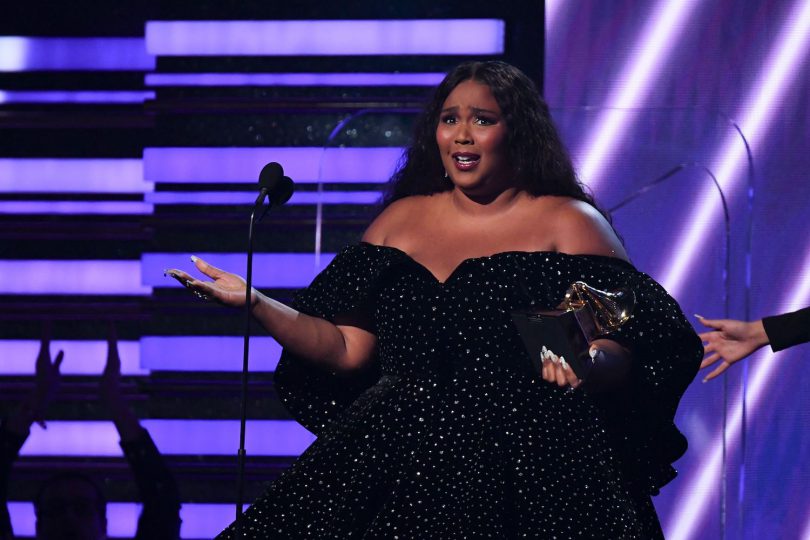With the Golden Globes and Grammy Awards already complete and the Academy Awards quickly approaching, we’re officially in the thick of awards season, where you’ll hear countless celebrities say thanks, share emotional stories and offer messages of inspiration.
With so many acceptance speeches in such a small amount of time, what makes some stand out when others fade into the background? The answer is a consistent and impactful message, and one that advances a celebrity or movement’s brand.
But being strategic with messaging isn’t just for celebrities, it’s an important part of any PR campaign or organizational branding. At MediaSource, we’re no strangers to cross-channel branding. Just like actors who have personal brands, actual brands need to make sure their message is consistent and impactful.
With that in mind, here are three important themes you can take from the best of awards show speeches and how you can use them to improve your own branding:
1. Make your message timely and relevant.
Memorable awards speeches don’t typically come out of thin air. Many of the best speeches serve as a comment on a particular current event, state of affairs or a timely and important message.
At this year’s Grammy Awards, held in the wake of Kobe Bryant’s tragic death, Lizzo used her moment on stage to preach a message of “connectivity” and using music to “reach out,” while Leonardo DiCaprio used his Oscars moment in 2016 to make a statement about climate change months after 2015 was noted as the warmest year on record.
To take a cue from these celebrities, it’s a great opportunity for a PR team to maximize its impact by pinning content to something that’s already relevant.
For instance: Is there a major social-media movement that your client can get behind? Can the product you’re marketing capitalize on a current trend? Does your content include a case study that’s relevant to a national conversation?
Finding these key hooks can be crucial to the success of your campaign, and can make the difference between a story that gets lost in the shuffle and one that earns headlines.
2. Tell a character-based story.
An organization — or, in the case of these speeches, a celebrity — can have an important and well-crafted message, but without a relatable character to draw in audiences, your story can lose its impact.
Take Tom Hanks’ famous acceptance speech for his “Philadelphia” win, for example. In an emotional moment, Hanks shared the story of his high school drama teacher, tying the tale into a broader message about the film’s commentary on homophobia and the AIDS epidemic.
Marlon Brando took that concept even further in 1973 when, instead of accepting his award for “The Godfather,” he invited Apache actress and activist Sacheen Littlefeather to accept the award on his behalf, making a statement about the film industry’s treatment of Native American communities.
Like these impactful speeches, PR pros will want to add a human element to their stories. It’s typically not good enough to state your message in an eloquent way. Without giving your story a human hook, it’s difficult to make the kind of emotional impression that will take your story further.
If you’re marketing a product, tie your story to a person whose life has been altered for the better. If you’re working with a health-care provider, find a patient who is the recipient of life-saving or -changing care.
Whether you’re telling the story of something serious and important or light and humorous, be sure to ground your tale with a real and relatable character who will resonate with audiences.
3. Prepare but be genuine.
When it comes to making an impact in a few seconds, an overly rehearsed or scripted speech isn’t the way to go.
From Sally Fields’ classic “you like me!” to Halle Berry’s emotional catharsis, some of the most memorable Academy Awards moments have seemed genuine and unscripted.
But in both of these cases and many others, the off-the-cuff feel is accompanied by a direct message that was clearly planned beforehand. For Fields, it was a message to her peers for respecting her. For Berry, it was a tribute to the women of color who came before her. And in both cases, striking the balance between that message and a natural feel was key.
If you have clients in need of interview coaching, these successful awards-show speeches can be a great example of the middle ground between riffing and over-preparation.
Be sure to go through the basic steps with your clients: keep your message simple but impactful, prepare your thoughts but stay conversational and tailor your message to the audience you’ll be speaking to. For the right balance, you’ll want your client’s personality to shine through while also delivering your brand’s message.
Not all of your clients will be able to deliver their message straight to millions watching at home, but the speeches you’ll hear at this year’s Academy Awards and beyond provide a great reminder for PR pros: It doesn’t take long to make a big impact.
Lisa Arledge Powell is president of MediaSource, an award-winning communications agency that specializes in video production, public relations, social media and strategic insights, constantly securing national exposure for major brands. Connect with Lisa on Twitter: @LisaArledge
Photo of Lizzo by Robyn Beck/AFP via Getty Images








Relevance is so important for making messages that stick. I think your tips on how we can frame our clients’ stories to create authentic relationships are absolutely necessary when crafting any message.
– Dylan Lanas, writer/editor for Platform Magazine